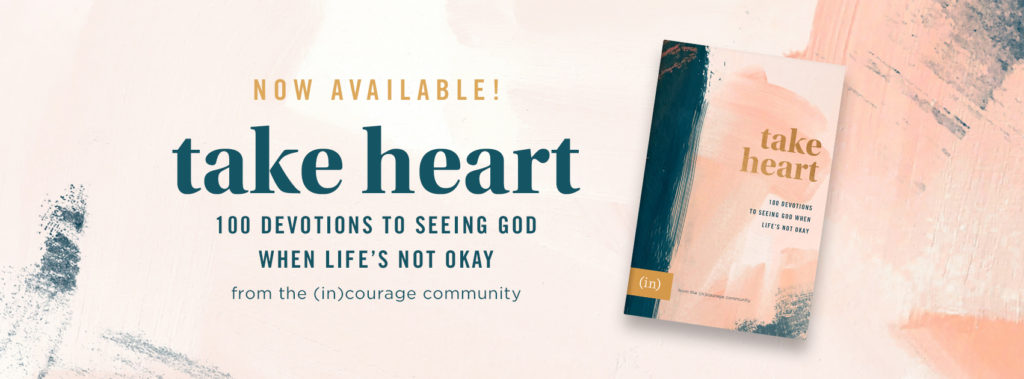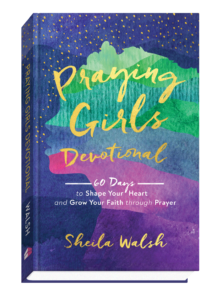Is the world (still) feeling uncertain to you? Did you, like me, think we’d be back to “normal” by now – after the Presidential election, when COVID numbers declined, etc.? Years ago, Patsy Clairmont wrote Normal is Just a Setting on Your Dryer, and that sentiment is as spot on as ever. Everything’s fine when I’m with family or friends, but if I scroll social media or read the news, I find myself wondering how we’ve lost our way so badly.
On one hand, it’s November! It’s a month that brings with it autumn’s incredible beauty, crisp, clear skies, cozy sweaters, college football, and pumpkin-spiced, well, everything. It’s a lovely season for expressing our gratitude, counting blessings, and gathering family and friends.
On the other hand, it feels like we’re a culture in chaos with circumstances out of our control. COVID changed the way we live. The state of politics in our country seems like two parties have been dropped into a centrifuge, then spun and slung to their extremes. It’s so loud at those edges that all the noise seems to be rendering people deaf from any opinion that doesn’t already align with their own.
What are we to do when our world no longer makes sense? What are those who follow Jesus to do?
I believe an old refrain holds the key:
Turn your eyes upon Jesus,
Look full in His wonderful face,
And the things of earth will grow strangely dim,
In the light of His glory and grace.
A while back, I had the sweet privilege of serving women in my area as a leader for a community Bible study. Every week before our class met, the leadership team showed up early to pray, go over announcements, and walk through the day’s lesson. But before any of that took place, we began our morning by singing this familiar chorus. It was effective. The things of earth – never-ending to-do lists, looming work deadlines, disagreements among friends, challenges with children, an argument with your spouse, health concerns, financial pressures, the chatter and clatter of politics, even some of our anxieties and feeling not enough – grew strangely dim.
The worries of the world wither under the blaze of God’s glory. When Jesus becomes our primary concern, everything else becomes secondary.
We see a perfect demonstration of this in Matthew 14 in an exchange between Jesus and Peter, His beloved friend and one of the twelve disciples. Following a miracle feast, Jesus sends His disciples ahead of Him by boat while He retreats to a mountain to pray. By the time Jesus travels to catch up with them, they are already a good ways out, their boat beaten and battered by the wind and waves.
In this familiar account, Jesus makes His way toward them by walking on water (Can we please take a moment to marvel at this together? Let’s not allow familiarity to dull us to the wonder of a miracle!). Jesus quickly identifies Himself and offers assurance to His terrified friends. Then, in a bold gesture, Peter asks to join Him. Jesus’s response?
“Come.”
If this story is new to you, Peter starts off just fine. He’s fully focused on Jesus. But the second Peter’s attention shifts from Jesus to his circumstances, fear creeps in and he begins to sink. Immediately, Peter calls out to Jesus to save him, and immediately, Jesus does.
Think how this plays out in your own life. Are the “winds” of the world swirling in your mind and carrying you out in a sea of anxiety, disappointment, or despair? Turn your eyes upon Jesus.
Do you worry that circumstances are simmering and seething and have finally reached a boiling point (personally or otherwise)? Turn your eyes upon Jesus.
When we focus on Jesus instead of circumstances, our circumstances may not change, but we sure do.
This calls to mind what we read in Romans 12:2 in the New Living Translation:
Don’t copy the behavior and customs of this world,
but let God transform you into a new person
by changing the way you think.
Then you will learn to know God’s will for you,
which is good and pleasing and perfect.
Transformation is accomplished by first changing the way we think.
I know what it’s like to wander around and feel lost, to wrestle in a sea of doubt, to question beliefs you once held dear. And while I don’t know what’s going on with you personally, I know all of us are affected by what’s going on in the world.
How can we possibly handle it? We can’t. We aren’t even supposed to — that’s why we have a Savior! Isn’t this liberating?
Since we’re forgetters, let’s remind one another that the gospel is good news. When we are mindful of who God is and what He has already accomplished in our lives and in our world, when we trust that He is good and loves us without condition, when we study His Word, claim His promises, and accept the forgiveness He offers, when we believe that He actually holds the whole world in His hands, when we turn our eyes upon Jesus, we will find peace.
To me, focusing on Jesus isn’t just one way we can best handle a world that feels crazy. It’s the only way.



 Sometimes this whole prayer thing can be overwhelming. How do you pray? What should you pray about? And why does it matter? In
Sometimes this whole prayer thing can be overwhelming. How do you pray? What should you pray about? And why does it matter? In